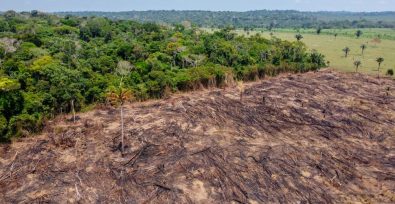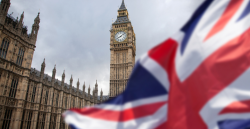Pumpkin spice season is back—but so is Starbucks’ problem with slave labor in its supply chain. In 2021, labor inspectors rescued twenty workers from a Starbucks-certified coffee farm in Brazil after finding them in modern slavery conditions. Brazil’s Ministry of Labor and Employment reported that the workers faced illegal wage deductions for protective equipment and lived in unsafe, unsanitary dormitories.
Despite the abuse, shocking new evidence shows the farm, Fazenda Floresta, kept its C.A.F.E. Practices certification, Starbucks’ own label meant to guarantee ethical production.
Coffee certified “ethical”
Brazil’s Ministry of Labor added the farm’s owner, Guilherme Sodré Alckmin Júnior, to the Dirty List of employers guilty of slave labor in early 2023, where he remained at least until 2024. He is now appealing the decision before the Superior Labor Court.
Yet, months after authorities published the list, Fazenda Floresta was still certified by Starbucks’ C.A.F.E. Practices. The owner’s lawyers even cited the active certification, valid until July 2024, in court filings obtained by reporters.
Louis Dreyfus Company (LDC), a major Starbucks supplier, terminated its contracts with Alckmin Júnior after his name appeared on the Dirty List. But the fact that the C.A.F.E. seal was maintained long after the violations were proven raises serious questions about Starbucks’ oversight.
When asked about the case, Starbucks declined to comment directly, offering only generic statements about “responsible sourcing.”
Passing the blame
Meanwhile, a new report published in October by Repórter Brasil says 15 new slave-labor cases were identified in Brazil’s 2025 harvest. Five of the cases involved growers tied to Cooxupé, one of Starbucks’ largest global suppliers. Among the 81 workers rescued were a 12-year-old child, a 16-year-old-teenager, and a 72-year-old man.
Cooxupé said it blocked the membership of the accused farmers, claiming that it does not sell coffee from farms that violate labor laws. The president of the National Coffee Council also argued in a signed statement that individual producers are responsible for worker conditions, not cooperatives.
When asked if the five members were linked to their coffee supply chain, Starbucks did not directly answer the question. The company explained that it purchases coffee from only “a small fraction” of Cooxupé members’ farms, specifically those verified through its C.A.F.E. Practices program, which it asserts involves “rigorous audits.”
But advocates reject that excuse. “That claim that they adopt every applicable practice does not hold up,” said Fernanda Drummond, an adviser to Conectas. She urged companies like Starbucks and its suppliers to increase transparency and collaborate with rural workers’ organizations.
Terrence Collingsworth, founder of International Rights Advocates (IRAdvocates) also stated:
It is shocking to me that Starbucks continues to claim that they are fully complying with their own standards of C.A.F.E. Practices and their own Code of Conduct when the facts are clear that violations are common,
The group is suing Starbucks in US courts on behalf of eight migrant workers, including one minor, allegedly trafficked and forced to work on Cooxupé-linked farms.
Demand change
Starbucks’ internal audit system creates the illusion of accountability without real change. Etelle Higonnet of Coffee Watch said to Repórter Brasil:
Starbucks was told over and over that it had these problems and that the problems were documented in very public ways. Yet, Starbucks did not repair its systems [for coffee purchasing] treating these cases of slavery as like random bad apples,
Starbucks is also under scrutiny for modern slavery in its cocoa supply chain. In the 2025 edition of the Chocolate Scorecard, Starbucks scored just 37%, with particularly low marks in the category of paying farmers a living income.
As pressure grows, one thing is clear: Starbucks’ promises of ethical sourcing ring hollow as long as the company continues to profit from modern slavery.
Sign the petition demanding Starbucks clean up its cocoa supply chain.







Freedom United is interested in hearing from our community and welcomes relevant, informed comments, advice, and insights that advance the conversation around our campaigns and advocacy. We value inclusivity and respect within our community. To be approved, your comments should be civil.
I commit to buy my coffee from Peets & boycott Starbucks.